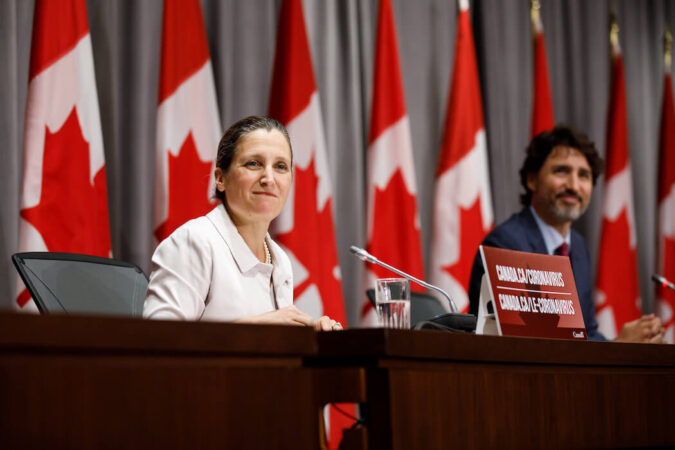
Budget 2023 includes $500 million over 10 years to SIF for cleantech.
The Government of Canada has published its 2023 budget, which is heavy on clean energy and cleantech investment but light on innovation funding beyond that.
Notable commitments include $500 million for cleantech investing through the Strategic Innovation Fund (SIF), and numerous new cleantech and clean energy investment-related tax credits.
Broadly speaking, the federal government’s latest spending plan appears geared towards three priorities: affordability, healthcare, and the green economy.
Compared to Budget 2022, which was surprisingly heavy on innovation policy, beyond cleantech, Canada’s latest annual budget appears to have less in the way of new tech sector commitments, as the federal government looks to balance making new investments and increasing affordability on shaky macroeconomic ground.
Executive summary
$500 million over 10 years to SIF for cleantech
Acknowledges SR&ED review without sharing status update
New regulations to protect Canadians from the risks of crypto assets
Legislative amendments to enable more clean economy investments from Canada Growth Fund
New 30 percent Clean Technology Manufacturing Investment Tax Credit
New 15 percent Clean Electricity Investment Tax Credit
Details on 15-40 percent Clean Hydrogen Investment Tax Credit
Expanded eligibility for 30 percent Clean Technology Investment Tax Credit
$108.6 million over three years to expand the College and Community Innovation Program
$368.4 million over three years for forest sector innovation
$333 million over ten years for Agriculture and Agri-Food Canada research and development efforts
Tax changes to facilitate the creation of Employee Ownership Trusts
As Canada’s Deputy Prime Minister and Minister of Finance Chrystia Freeland noted in her March 20 pre-budget positioning speech, one of the government’s “primary goals” in this year’s budget is “not to pour fuel on the fire of inflation.”
At the same time, as Freeland previously signalled, Budget 2023 prioritizes “two significant and necessary investments,” including funding for federal-provincial healthcare deals, and new measures for cleantech and the green economy.
Comparing past promises and what #CDNtech hoped to see
Over the past year, Canada has advanced some of its previously announced innovation priorities. This includes moving forward on a long-awaited Canadian innovation and investment agency designed by Dan Breznitz, which has since been named the Canada Innovation Corporation and given a budget of $2.6 billion upon absorbing the National Research Council of Canada Industrial Research Assistance Program (NRC IRAP).
The Government of Canada also doled out funding for the rebranded Innovation Clusters and revealed plans for its $360 million National Quantum Strategy, first promised as part of Budget 2022 and Budget 2021, respectively.
One area where little detail has been shared in recent months is the review of Scientific Research and Experimental Development (SR&ED), which was announced in Budget 2022. As recently as November, CCI lamented the lack of detail on the review even as some Canadian innovators have wondered what this SR&ED review will accomplish.
In her fall 2022 economic statement, Freeland emphasized that investing in the green economy was a priority for the Government of Canada, promising more investment tax credits for cleantech in the wake of the US Inflation Reduction Act (IRA). Per The Logic, many energy companies had been asking Canada’s federal government to match various aspects of the US IRA.
Despite the size of Budget 2023’s new cleantech and climate-related commitments, whether the government will be able to fulfill them remains another question. According to a recent analysis by The Logic, the Government of Canada has thus far allocated only $868 million of the $1.28 billion it planned to spend over the past year on clean energy and climate programs.
Beyond cleantech, certain tech stakeholders hoped to see Budget 2023 funding allocated towards Canada’s domestic semiconductor ecosystem following pandemic-fuelled chip shortages.
It’s an area that the federal government has given more attention to of late. In a recent visit, US President Joe Biden made the case for greater US-Canada cooperation on chips, defence, and critical minerals. The US also announced an additional $50 million USD in Defense Production Act funding for US and Canadian companies to advance packaging for semiconductors and printed circuit boards. Last year, Canada committed to provide up to $150 million CAD for semiconductor projects from the Strategic Innovation Fund, recently adding an additional $100 million to that amount.
For its part, the Canadian Web3 Council wants Ottawa to develop a national regulatory framework for blockchain and digital assets.
Meanwhile, amid the market downturn and Silicon Valley Bank’s collapse, some Canadian tech leaders have asked Ottawa to inject $700 million CAD of capital into the ecosystem via existing programs. This includes the launch of a second $300 million CAD Bridge Financing Program through BDC, accelerating deployment of the approximately $200 million fund-of-funds Venture Capital Catalyst Initiative (VCCI) and the $200 million EDC has allocated towards investments.
Though much of these liquidity concerns have since been assuaged, Canadian Venture Capital and Private Equity Association (CVCA) CEO Kim Furlong recently told BetaKit that the organization still sees a need for these measures amid a tough environment for tech.
According to The Logic, CVCA had also asked for a $100 million add-on to VCCI focused on emerging managers, and for the Government of Canada to expand a $50 million VCCI allotment for life sciences promised in Budget 2021 to $300 million.
Developing…
Feature image courtesy Flickr.
.